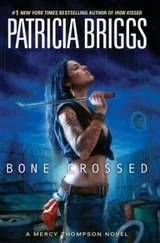Then, they began to talk about the practical details of disentangling their lives. Would the house have to be sold? If so, how was the equity to be divided? Which pieces of furniture would Lauren want to take? There was something mildly indecent about this conversation, like talking about insurance policies when the person insured is still clinging to life. Nothing useful was said, but the mere fact of trying to grapple with these mundane matters made each of them believe — in Tom’s case, for the first time — that it was going to happen.
It seemed ridiculous to share a bed after that, and, after ten years, equally ridiculous not to. Tom got undressed in the bathroom, but refused to hunt out his pyjamas. They’d always slept naked, and it would have seemed… stupid to do anything else now. But all the same, he went back into the bedroom feeling like a plucked chicken.
The cold air round his groin reminded him of the first horrible night in boarding school, two rows of little boys standing on the ends of their beds, in darkness, while Matron, a terrifying woman, bore down upon them, one by one, scooped their genitals up in a white cloth, and shone a torch in the folds of skin on either side. Searching for Tinea cruris, of course, but they hadn’t known that. God knows what they’d thought was going on. He remembered it clearly: the cold, the dark, the circle of light, Matron’s blurry face, bending down, the lines of pallid, frog-like little boys.
Sliding down the cool sheets, he realized that what had triggered the memory was not merely the embarrassment of nakedness in front of an unfriendly audience, but the sense of abandonment.
In the dark, sweating, he rooted towards her, blind as a mole, and she opened up to him, put her arms around his shoulders, pressed her face into his stringy hair. He lay, half on top of her, one hand clamped round her thin wrist, and she bore it, but inwardly, where it mattered, he felt her withdraw from him. More than anything else, this tolerance, this kindness, convinced him she meant what she said.
After a decent interval, she eased herself from under him, but it was a long time before he knew, from the evenness of her breathing, that she’d gone to sleep, and longer still before he managed to follow her.
The following morning he woke early. Sunlight streamed into the room through a gap in the pale-grey curtains. Lauren had kicked off the duvet during the night, and he lay looking at her, amazed by that cello-on-its-side flare of the hip, and the fuzz of fine golden down in the small of her back.
His cock was achingly hard. Well timed, old son, he thought bitterly. Spot on.
Breakfast was coffee and toast, eaten standing up in the kitchen, followed, on Lauren’s side, by two hours of packing. She’d bring a van for the pictures and the furniture, she said. She’d ring him early next week to agree on a time. As to what she’d be taking, they could sort that out later, over the phone.
He was relieved they weren’t going to haggle about it now. In fact, he was determined not to haggle at all, though he’d seen enough of other people’s divorces to know how corrosive the process of separation can be. He sat in the living room, hearing her move around upstairs. It seemed unreal. At last the suitcases were filled and locked and their straps buckled. He carried them down to the hall.
Already the house felt depleted, though nothing had gone except the contents of Lauren’s wardrobe and a chest of drawers. One or two ornaments. He looked at a circle in the dust on the mantelpiece in their bedroom, and tried to remember what had been there. They were fading already, the details of their life together.
They had two hours to fill in before her train left. Nothing seemed right. In the end they spent the time, as they had often done on Sunday mornings, at the Quayside market.
The pubs were open. People crowded the pavements, bare-armed, sweating, boisterous. The air was hot and dusty, freshened by the merest hint of a breeze coming off the Tyne. The market had changed in the years they’d been coming here, become more of a tourist attraction, less obviously a place where items that fell off the backs of lorries changed hands with no questions asked. Once there’d been touts, posted at either end of the aisles, to warn stallholders of approaching policemen.
A crowd had gathered near the bridge, and they drifted in that direction. A young lad, twelve or thirteen years old, wearing only a pair of stone-coloured shorts and sneakers without socks, stood hugging himself. Little wizened nipples like berries on his chest. Tom noticed his shape most of all: small for his age, short-necked, short-waisted, pigeon-chested, that curious concertinaed look you used to see on girl gymnasts from the Eastern bloc. He was staring round the ring of people. Beside him, on the ground, lay a sack and a heap of rusty chains.
Suddenly, with a great scrape and rattle, a man with a bald head and tattooed arms swept the chains off the ground and carried them round the circle of spectators, pressing them — bullying them, almost — to test the strength of the links. He wore his long, dirty-blond hair in a ponytail; a bare torso rose out of filthy jeans. Tattoos covered his body everywhere, every available inch. Above the sagging belt were the words pussy magnet in red and blue.
A few people, Lauren amongst them, drifted off, not liking the hectoring tone, but most stayed to watch. Something deeply unpleasant about this, Tom thought, nasty, though the boy, who, after all, was more than half naked, showed no signs of ill treatment, no lacerations, no bruises. He was skinny, but not undernourished, and seemed bored, or indifferent, rather than cowed. He stepped into the sack. His father — if it was his father — pulled it over his head and tied it. Then he began to win4 the chains round the sack, padlocking them as he went, until boy and sack had been transformed into a mummy whose bandages were iron.
A small, thin woman began to beat a drum. The bundle convulsed, each end struggling to meet in the middle, like a chrysalis beginning to split. Tom almost expected to see yellow fluid oozing from the bag. More convulsions, grunts of effort, turning, writhing. The chains screeched on the flagstones. No progress, though, until suddenly, amidst a growing murmur of concern, the first chain fell away. The boy jackknifed, and then, in a single movement, stood up holding the last padlock above his head.
The crowd clapped, a grudging ripple of applause that seemed to infuriate the tattooed man. Grabbing the boy by the arm, he dragged him round the breaking circle, thrusting a cap into people’s faces, almost shaking the coppers out of them. Tom threw all his loose change into the cap, not because he was intimidated, but because he felt ashamed of having been present.
The performance had deepened his depression. He was glad to get away. He began searching for Lauren, pushing his way up and down the crowded aisles, looking for a pale, blonde head, thinking how strange it was that, for an hour or so longer, he still had the right to look for her. The market was no more than a quarter of a mile long, but he couldn’t see her. Nothing could have happened to her. Still, there was a constriction in his throat, a fullness in his chest, and he began to shoulder his way roughly through the crowds. At last, forcing himself to stay calm, he climbed some steps and scanned the crowd, slowly and methodically, left to right and back again, and there she was. Not alone. Talking to somebody, a tall, dark-haired young man standing with his back to Tom. His head looked familiar, but it wasn’t until he turned slightly that Tom recognized him. Danny Miller.
No reason why he shouldn’t be here. He was a student: this was one of the few places students could afford to shop. He must have identified Lauren from her photograph on Tom’s desk, and stopped to speak to her. No reason why he shouldn’t. Yet the sight of them together made Tom uneasy.
Читать дальше












